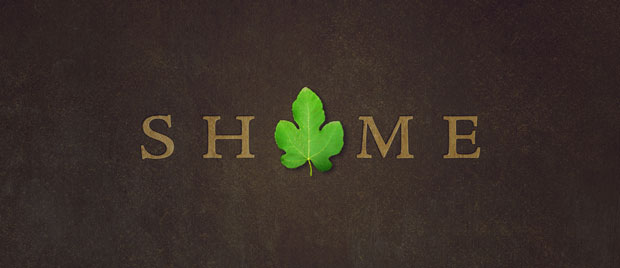Nakedness Equals Shame

Many years ago, I wrote a book that was first titled The Psychology of Atheism, then later retitled If There Is a God, Why Are There Atheists? In it, I included a chapter on the nakedness motif that we find in sacred Scripture and in Western philosophy. I did a word study of gumnos, which is the Greek for "naked." In the garden of Eden, the man and the woman were naked but without shame until sin came into their lives. The very first psychological self-awareness of guilt and shame was an uncomfortable awareness of nudity. Since then, human beings have been the only creatures who have adorned and covered themselves with artificial garments, because it is built into our fallen humanity to equate shame and humiliation with nakedness.
Throughout the pages of Scripture, when God speaks of bringing judgment against the guilty, He does it by exposing their sin and stripping them of their clothes. A prime example of this comes from the book of the prophet Amos. Amos gives the Lord's list of transgressions by Moab, Judah, Israel, and so on, then gives God's response: "Behold, I am weighed down by you, as a cart full of sheaves is weighed down." This is God's rebuke of His people. He then says: "Therefore flight shall perish from the swift, the strong shall not strengthen his power, nor shall the mighty deliver himself; he shall not stand who handles the bow, the swift of foot shall not escape." God was foretelling the conditions when He visited His judgment on His people. Then He says, "The most courageous men of might shall flee naked in that day" (2:13–16). As another example, the book of Revelation connects the judgments of God on the wicked to nakedness (Rev. 3:17; 16:15; 17:16).
The motif of clothing and nakedness is at the heart of our understanding of redemption. Our own righteousness, we are told, is like rotten, filthy rags (Isa. 64:6). The only way any of us can stand in God's presence is to be stripped of those rags and then clothed afresh in the garments of Christ's righteousness. That is the gospel. You and I can never stand in the presence of a holy God unless we are clothed from on high with a righteousness that is not our own.
God has provided for us a covering for our shame and our nakedness. He has invited us into His redeeming presence to experience anew that sense of safety that we have in knowing His Son has covered our sin with His blood on the cross and covered our nakedness with His perfect righteousness in His life.
An excerpt from the St. Andrew's Expositional Commentary on Mark, by R.C. Sproul.